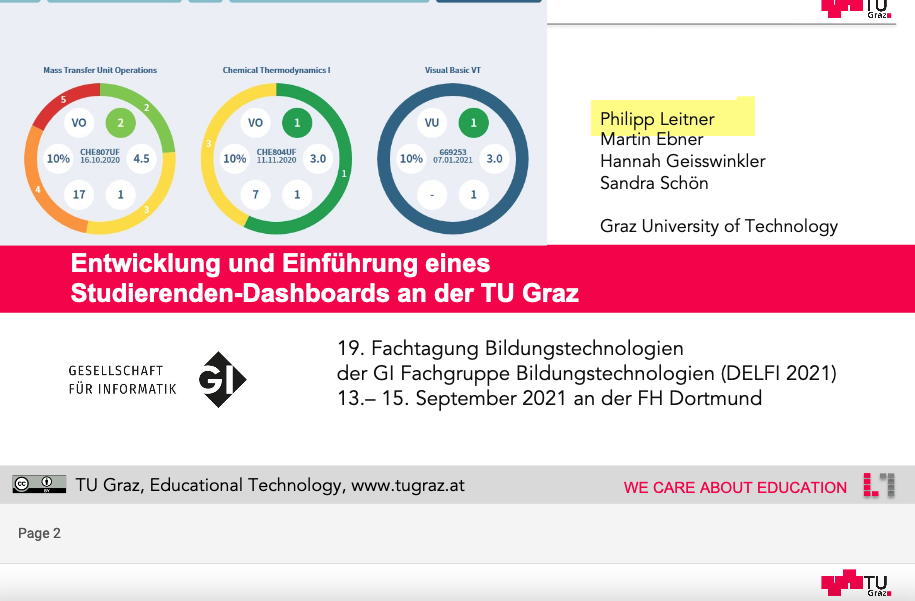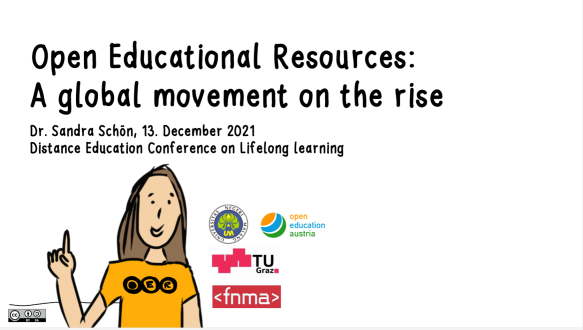Quelle: Sandra Schön Autor: sansch
Our contribution to the CSEDU 2020 conference about „MOOCs, Learning Analytics and OER: An Impactful Trio for the Future of Education!“ got finally published in 2021. Martin Ebner did the presentation in May 2020 in the very beginning of the COVID19-pandemic and it was his first complete online keynote 
Abstract:
This paper discusses the general thesis that massive open online courses (in short MOOC), open educational resources (in short OER) and learning analytics are an impactful trio for future education, especially if combined. The contribution bases upon our practical experience as service providers and researchers in the department “Educational Technology” at Graz University of Technology (TU Graz) in Austria. The team members provide support to lecturers, teachers and researchers in these addressed fields for several years now, for example as host of the MOOC platform iMooX.at, providing only OER since 2015. Within this contribution, we will show, against some doubtful or conflicting opinions and positions, that (a) MOOCs are opening-up education; (b) learning analytics give insights and support learning, not only online learning, if implemented in MOOCs; and (c) that OER has the potential for sustainable resources, innovations and even more impact, especially if implemented in MOOCs.
Reference: Ebner M., Schön S. (2021) MOOCs, Learning Analytics and OER: An Impactful Trio for the Future of Education!. In: Lane H.C., Zvacek S., Uhomoibhi J. (eds) Computer Supported Education. CSEDU 2020. Communications in Computer and Information Science, vol 1473. Springer, Cham. https://doi.org/10.1007/978-3-030-86439-2_2



